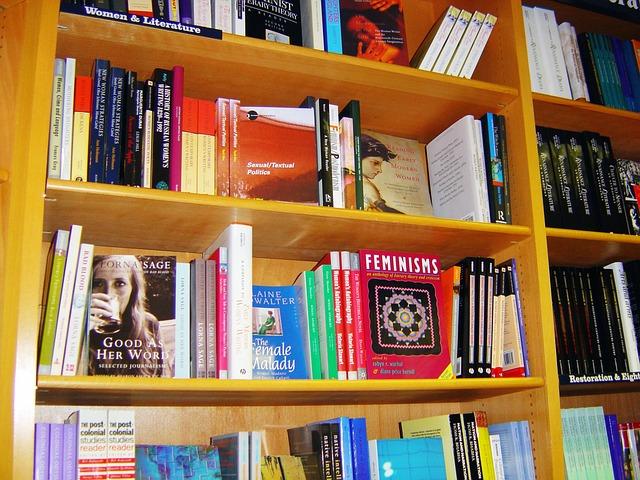In the vast ocean of literary creation, where words ebb and flow like tides, there exists an intricate dance between the writer’s pen and the reader’s interpretation. Beyond the immediacy of enjoyment and the basic understanding of plot, there lies a deeper realm—a realm where meanings are not merely absorbed but are meticulously excavated. This is the domain of literary criticism, an art form unto itself, which seeks to unravel the enigmatic tapestry of texts, peering beneath the surface to uncover the wealth of insights veiled within. “Literary Criticism Unveiled: Analyzing the Depths of Texts” invites readers on an exploratory journey, navigating through the layers of narrative, poetry, and prose. Here, we endeavor to illuminate the multifaceted lens through which critics view literature, shedding light on how texts communicate far beyond their literal meanings, engage with their sociopolitical contexts, and resonate with or challenge the reader’s own perceptions. As we traverse this landscape, we invite you to open your mind to the vast possibilities of interpretation, embarking on a quest not just to decipher what literature is, but to discover what it does and why it matters. Immerse yourself into the depths of metaphoric language and symbolism, and gain a fresh perspective to decipher the coded literary text. Witness the power of metaphor as it metamorphoses from mere ornate expression to a powerful tool of representation. Go beyond the surface level of symbolism and explore the profundity that lies within. Just like a pearl diver wearing goggles, you’ll start to see the layers of literature peel away to reveal the hidden treasures inside.
Decoding The Echoes of Society: Literature serves as both a mirror and a lens, reflecting societal norms and magnifying its flaws. Novels, poems, plays, they aren’t just mere stories. They are profoundly entwined with the socio-political context of their time. Ingrained in their webs are biting critiques of societal standards and norms. Painters capture the essence of era through their brush strokes, but authors do it through their words and narrative. Works like George Orwell’s 1984, Harper Lee’s To Kill a Mockingbird serve as perfect examples showcasing this rich intertwining.
| Author | Work | Social Commentary |
|---|---|---|
| George Orwell | 1984 | A dystopian critique of totalitarian regimes |
| Harper Lee | To Kill a Mockingbird | Indicting racial injustice in America |
Unraveling The Thread: The narrative voice isn’t just a guide; it’s a sculptor shaping the story and your perception. It chooses what to reveal, what to hide, and when to lead you astray. It can subtly influence your thoughts, make you fall in love with a character one moment and despise them in the next. In Wuthering Heights, Emily Bronte uses multiple narrators, altogether providing a multi-faceted view of the story.
As we transition From Analysis to Creation, we start applying these critical insights into our own writing. We paper our thoughts and paint them with metaphors, we sketch out characters shaped by social norms, embed a narrative voice and manipulate it to drive the narrative. We hone our criticism skills and evolve not just as avid readers, but as writers too.
In this sprawling ocean of literary criticism, find your island of interest and start exploring. Happy sailing! As our journey through the labyrinthine corridors of literary criticism comes to a close, it’s clear that the exploration of the intricate layers of texts is far from over. In the quest to unravel the enigma of meaning, context, and nuance that texts provide, we have encountered a kaleidoscope of theories and perspectives, each offering its unique lens through which to view the literary world. From the scrutinizing eyes of formalists to the culturally attuned insights of post-colonial critics, the field of literary criticism is a testament to the endless curiosity and interpretative hunger that drive human understanding.
Yet, the voyage through the depths of literary criticism is not merely an academic pursuit. It’s a journey that enriches our soul, challenges our perspectives, and deepens our connection to the world and to each other. Through the act of analyzing texts, we partake in an ongoing dialogue that transcends time and space, engaging with voices from the past, conversing with the present, and influencing the future narrative of humanity.
As we pull away from the shores of this article, let it be with a renewed sense of purpose and curiosity. May the tools and insights gleaned from this exploration propel us forward, eager to dive deeper into the ocean of literature that awaits. The map of literary criticism is vast and varied, inviting readers, scholars, and dreamers alike to chart their own courses through its waters.
In this boundless exploration, there are no final destinations, only ever-expanding horizons of understanding and connection. Let us embrace the journey, for in the quest to analyze the depths of texts, we may just discover something profound about the human experience itself.









